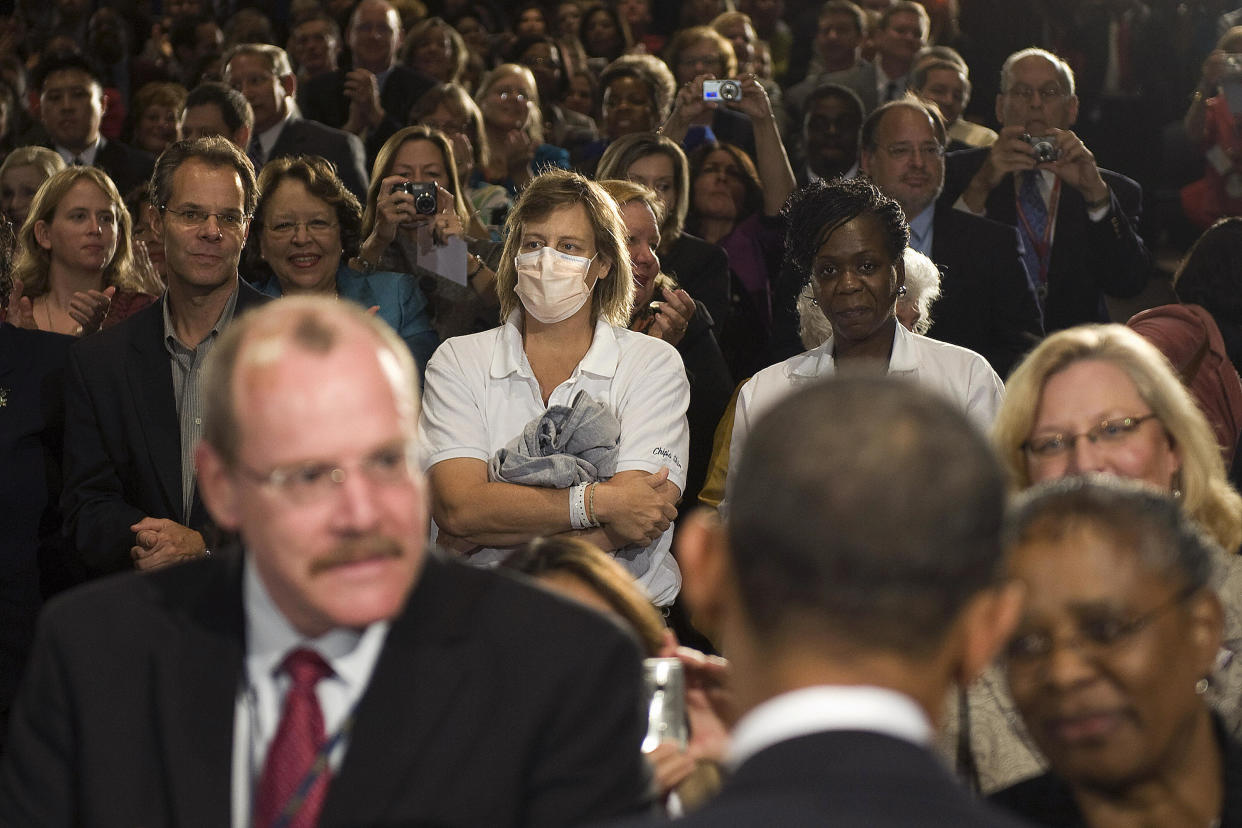Does wearing a mask really keep us safe from the flu?

In Asia, wearing a mask is commonplace. Between protection from poor air quality and safeguarding against the spread of disease, it has become normal to spot many on the streets of Tokyo or Hong Kong wearing face masks. But are masks about to become a daily accessory in the U.S.? And are masks really even an effective way to keep yourself healthy and safe?
There are many reasons for Americans to consider wearing masks. There is, of course, the recent and ongoing flu epidemic, which has spread the virus to every state. There is also the rise of pollution in metropolitan cities, with some surprising states like Alaska and Utah producing the most toxins.
A mask can help prevent against flu, but its effectiveness depends on what kind of mask you wear and how often you wear it. The Centers for Disease Control suggests disposable surgical masks for preventing the spread of flu, but they are not meant to be used more than once. The FDA offers slightly different advice, saying, “While a facemask may be effective in blocking splashes and large-particle droplets, a facemask, by design, does not filter or block very small particles in the air that may be transmitted by coughs, sneezes or certain medical procedures. Facemasks may also help reduce exposure of your saliva and respiratory secretions to others.”
Dr. Noah Greenspan, a board-certified cardiovascular and pulmonary physical therapist, agrees with the FDA, saying, “While the surgical masks that you often see people wearing on the streets of N.Y.C. or Beijing may protect you from large particulate matter, liquids, and solids, they do little to protect from gaseous pollution and very small particulates for a couple of major reasons.” He says that lack of a tight seal or a fine filter makes these types of masks relatively ineffective when it comes to filtering out pollution or germs in the air. If you want to get really heavy duty, an N99 mask (a mask that can filter out 99% of airborne particles) is preferred — and one with a built-in filter at that.
Online searches for N99 masks soared in October during the California wildfires and again in December as more wildfires blazed. Most searches came from Utah, the state ranked third for toxic air quality by Forbes in 2017, followed by Oregon and California, both likely due to the fires.
But what about masks and the flu? Dr. Amesh A. Adalja, M.D., a board-certified infectious disease physician and senior scholar at Johns Hopkins Center for Health Security, reminds us that “vaccination remains the best preventative measure against flu.” However, the elderly have a reduced response to the vaccine, and infants are often unable to be vaccinated. With that in mind, Adalja says, “influenza is primarily spread through respiratory droplets that find their way to people’s noses and mouths. A mask can diminish that possibility. As this season is moderately severe, mask use is becoming more common.”
A smaller segment of the population is immunocompromised due to cancer treatment, pregnancy, immunotherapy, HIV/AIDS, or other immune disorders. These are likely the populations that will be using masks already, as advised by their medical professionals. Adalja says that “mask use in those situations is reasonable.”
So should you be wearing a mask? The answer is: it depends. If you are one of the vulnerable among us — or if you are actively sick — it might not be a bad idea. But check with your physician, as some people who already have difficulty breathing might be further restricted if they wear a mask. If it is healthy for you to do so, wearing a mask might help to protect you from what is in the air (or protect those around you from the flu that you already have). But masks are not foolproof, and certainly not if you’re wearing a surgical mask to prevent the spread of sickness — opt for an N99 mask instead. That said, if any type of a mask makes you feel better, then maybe that’s enough.
Read more from Yahoo Lifestyle:
Follow us on Instagram, Facebook, and Twitter for nonstop inspiration delivered fresh to your feed, every day.
